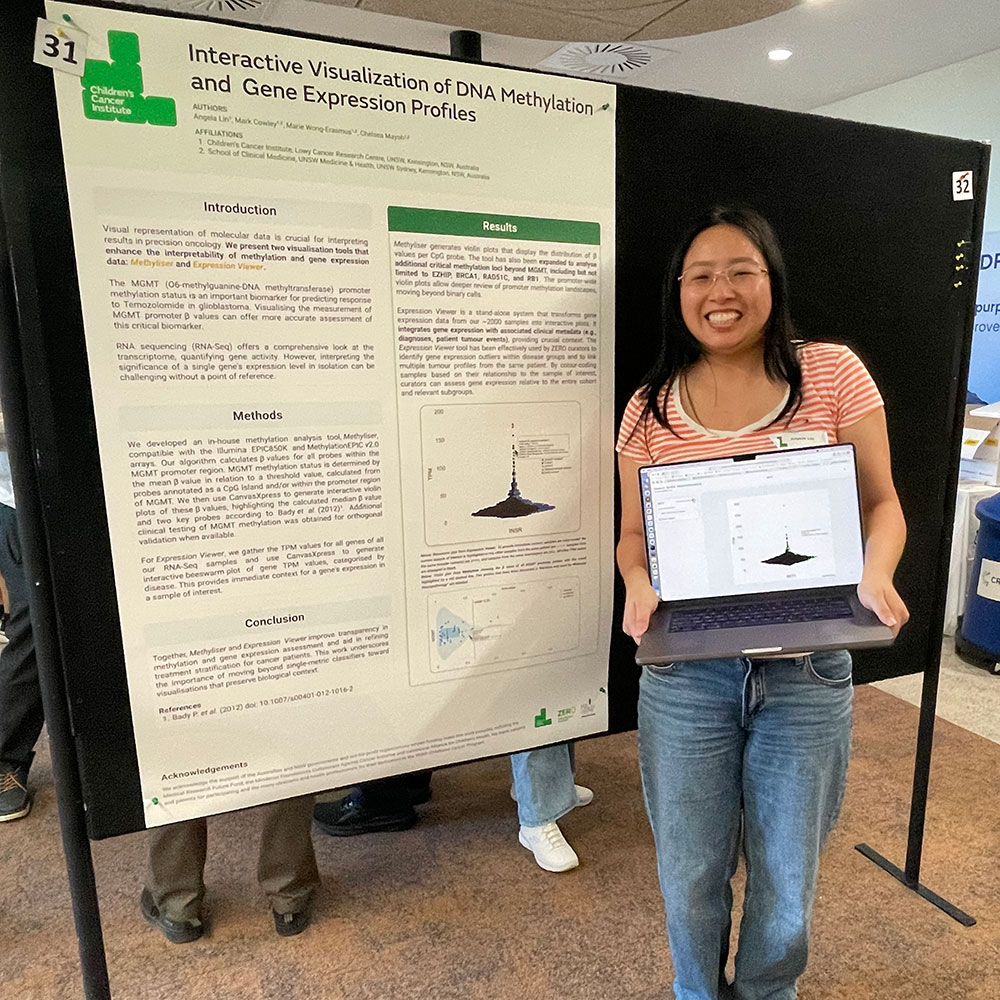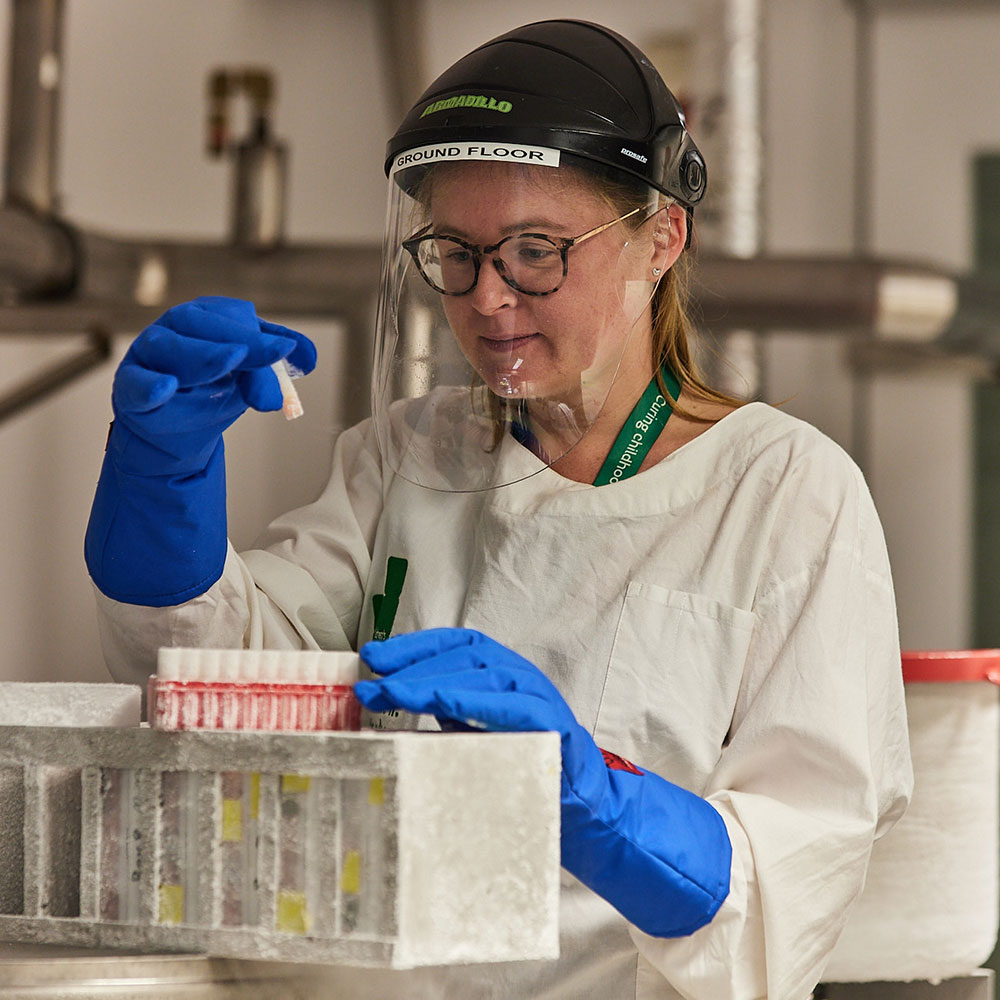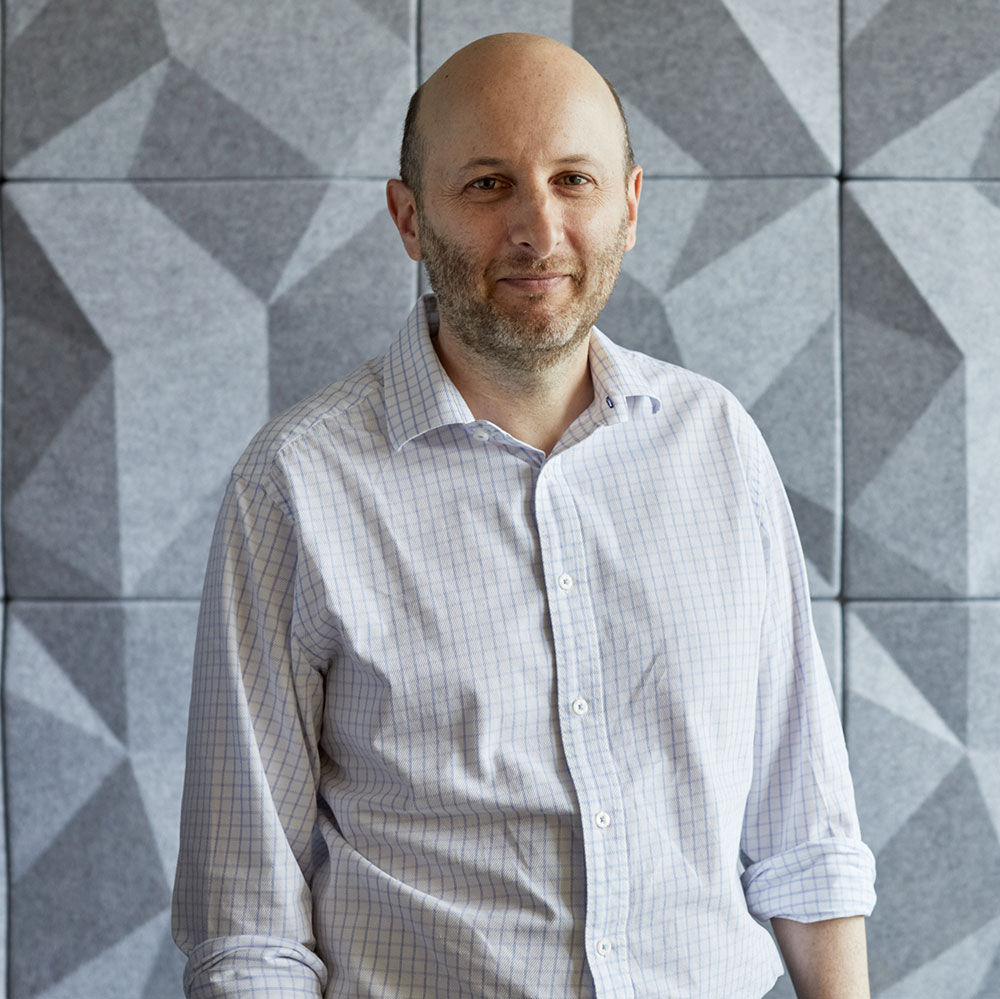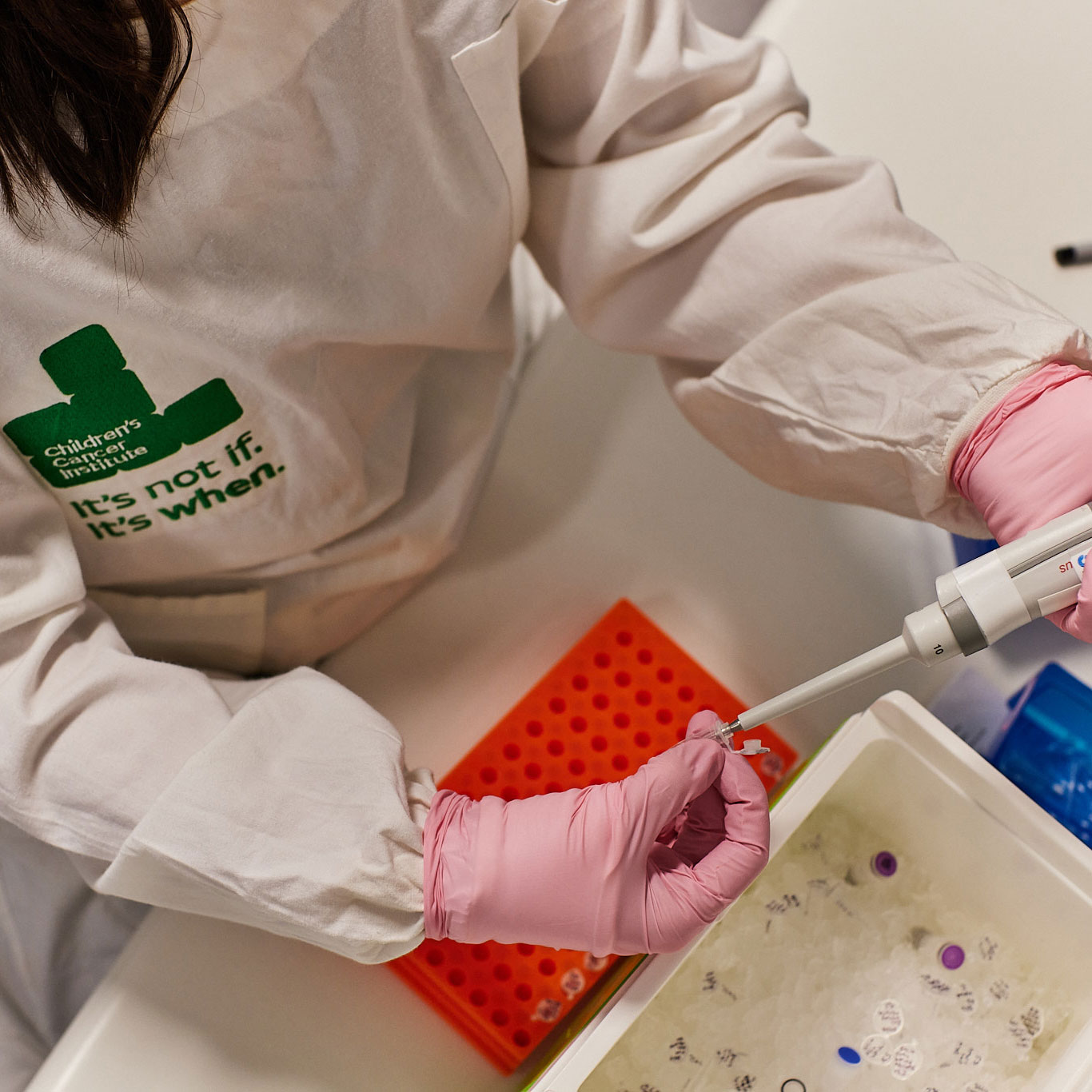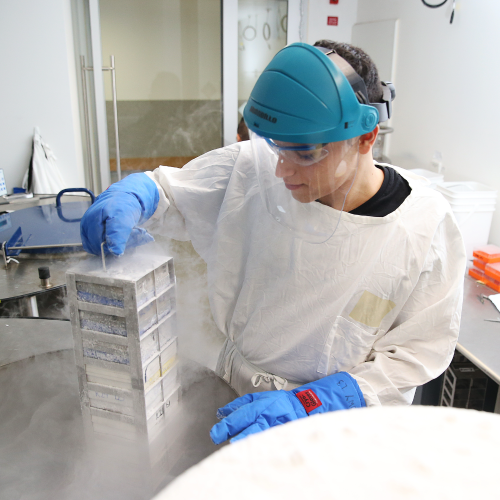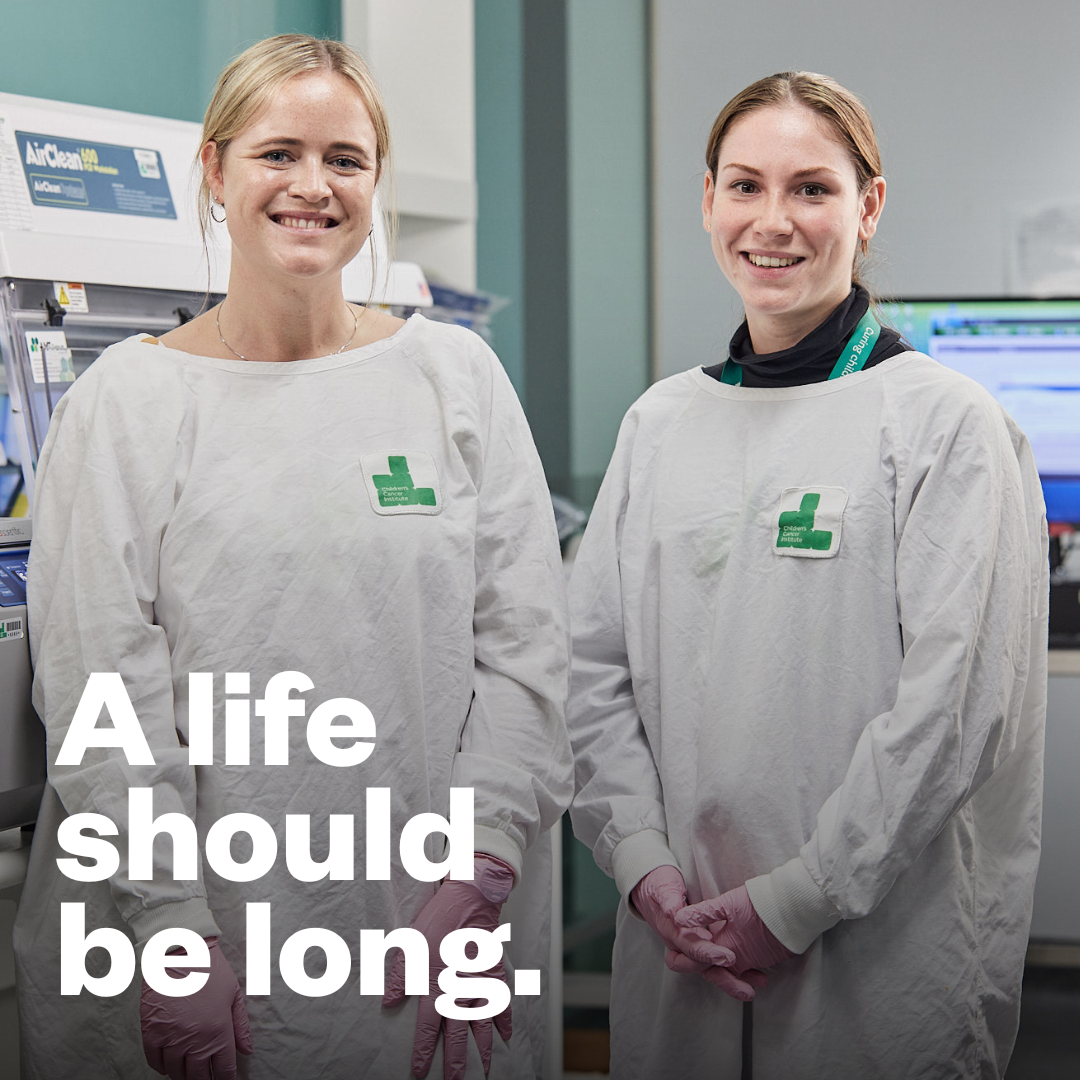Over the last month you’ve seen how our laboratory research is working to find better treatments for childhood cancer, and to move (translate) these treatments into the clinic as quickly as possible.
So much has already been achieved, but two major hurdles still stand in our way. Two out of ten children still don’t survive their cancer, and, of those who do survive, four out of five will experience long-term health issues as a result of their treatment. Fortunately, the technology that will enable us to overcome these hurdles is rapidly evolving, opening exciting new doors for researchers, doctors and patients.
A new era of cancer treatment: personalised medicine
Scientist have long known that every cancer is unique. Now, technologies such as Whole Genome Sequencing (‘reading’ the entire DNA sequence of cancer cells) are enabling researchers to determine the specific DNA changes in each individual’s cancer. Drugs targeting many of these specific DNA changes are increasingly becoming available, providing the possibility, not only of killing the cancer cells more effectively, but of doing it with less damage to surrounding normal tissues.
Personalised medicine is increasingly being used in the treatment of adult cancers. And some personalised approaches are being used for some children’s cancers in Australia and overseas.

The power of genomics harnessed by personalised medicine is starting to change the way doctors treat cancer patients. Traditionally, they treated with drugs that were approved and used for different types of cancer according to where in the body the cancer occurs, eg breast, lung, skin, colon. Recently however, the US Food & Drug Administration (FDA) approved the first cancer treatment for a specific genetic feature, regardless of the tumour type or where in the body it is.
Zero Childhood Cancer: a national personalised medicine trial for childhood cancer
Some years ago, we developed a test called Minimal Residual Disease Group to personalise leukaemia treatment. This test tracks the response to treatment of children with acute lymphoblastic leukaemia and allows doctors to adapt their treatment accordingly. Now we’re expanding the personalised medicine approach to include all children with the highest-risk cancers. Last week, we and Sydney Children’s Hospitals Network launched Zero Childhood Cancer, a national personalised medicine clinical trial for children with cancer.
Zero Childhood Cancer is one of the most comprehensive child cancer personalised medicine studies in the world. It brings together each of Australia’s eight child cancer treatment centres and thirteen leading national and international medical research institutes to offer the nation’s first ever personalised medicine program for children with high-risk and relapsed cancer.
This brings research and treatment closer than ever before, potentially translating treatments from bench to bedside faster.
The trial will use Whole Genome Sequencing of each child’s entire genome and targeting gene profiling to identify gene alterations that may be drug targets, and then match drugs to each child’s cancer. In addition it will use:
- High-throughput drug screening to identify which drug(s) are best at killing each child’s cancer cells. Using robotic high-throughput drug screening, in one week we can test thousands of potential drugs against a child’s cancer cells, either as single agents or in combination with other drugs.
- Growing each child’s cancer in mouse avatars. Where possible, we test the effectiveness of particular drugs in a mouse avatar for each child’s cancer. This may prove the most reliable way of predicting how effective a drug will be against an individual child’s cancer.
We believe that personalised medicine is the future of childhood cancer research. And we’re not alone. At the launch of Zero Childhood Cancer last week, Federal Health Minister Greg Hunt highlighted the trial’s significance.





